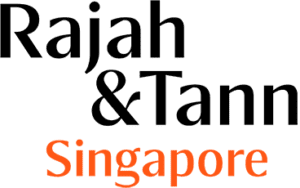Introduction
Following on from the two recent trade seminars that our Competition & Antitrust and Trade team have hosted regarding trade and tariffs, we provide an update on the new “Affiliates Rule” implemented by the United States of America (“US“) Bureau of Industry and Security (“BIS“), which expands the scope of US export controls and aligns it with long-standing US sanctions practice. Given that businesses often conduct trade across jurisdictions, compliance with rules as introduced by the relevant country’s regulators is of vital important. This includes trade rule issued by BIS, such as the new Affiliates Rule. These latest tweaks to export controls and the relevance of international sanctions could have an impact on your supply chain.
BIS 50% Affiliates Rule
On 29 September 2025, BIS issued an interim final rule establishing a 50% Affiliates Rule, effective immediately, where the BIS Entity List, Military End User (“MEU“) List, and certain sanctions-related restrictions will now automatically apply to any foreign entity that is 50% or more owned, directly or indirectly and in the aggregate, by one or more parties on those lists.
To provide some background, the US Export Administration Regulations (“EAR“) imposes stringent restrictions on the export, re-export, or transfer of items controlled under the EAR to parties that are named in the Entity List and MEU List. In particular, exporters are required to obtain a licence from BIS before exporting to the named parties. Prior to the Affiliates Rule, these restrictions only applied to parties that are specifically named in these lists. This meant that so long as the counterparty (e.g. purchaser, consignee, end user, etc.) was not named on the lists, the restrictions would not be applicable.
With the introduction of the Affiliates Rule, the restrictions have been extended to automatically apply to foreign subsidiaries and affiliates that are 50% or more owned, directly or indirectly and in the aggregate, by one or more parties that are named on the lists. These foreign subsidiaries and affiliates will therefore now be subject to the same restrictions as their named parents.
Further, the Affiliates Rule adds an obligation (Red Flag 29) where an exporter is required to determine ownership percentages of a counterparty once it “knows” or has reason to know that the counterparty has a named parent. If ownership cannot be confirmed, the exporter must obtain a BIS licence before proceeding with the export.
This is a significant expansion in the scope of US export controls, extending the reach of the Entity List and MEU List restrictions beyond the named parties to now also cover their foreign subsidiaries and affiliates. Consequently, this represents a potentially significant impact on your business.
Interplay between Sanctions and Export Control
The BIS 50% Affiliates Rule brings the application of the Entity List and MEU List in line with the US Office of Foreign Assets Control’s (“OFAC“) application of the OFAC sanctions lists, where OFAC has a long-standing 50% Rule that automatically applies sanctions prohibitions to parties that are owned 50% or more, directly or indirectly and in the aggregate, by sanctioned parties.
Export controls and trade sanctions are distinct but overlapping policy tools in restricting the cross-border movement of certain goods based on destination, use, and/or end user, with export controls being more targeted at specific goods and technologies, while trade sanctions are generally broader and cover various sectors and/or countries. The alignment of the BIS 50% Affiliates Rule with the OFAC 50% Rule is a clear sign of the US’s intention to continue using both export controls and sanctions to advance its foreign policy goals. It is therefore critical for businesses to ensure compliance with both export controls and sanctions.
Recommendations for Businesses
With the introduction of the BIS 50% Affiliates Rule, businesses will now need to enhance their export control-related due diligence processes – screening and checking not only the names of the counterparties, but also tracing ownership upstream to determine whether the counterparties are owned by a named party. However, as businesses should already be conducting such enhanced and expanded due diligence processes in relation to sanctions screening, businesses can try to leverage existing sanctions due diligence processes and adapt these processes to cover the expanded export controls. There are other practical steps that can be taken too.
Businesses will also need to ensure compliance with the expanded scope of the US export controls, in particular applying for and obtaining the requisite BIS licences prior to exporting any EAR-controlled goods to parties that are caught by the expanded Entity List and MEU List restrictions.
If you have any queries or would like to discuss any of the above points, please do not hesitate to contact Kala Anandarajah at [email protected] or Nicholas Yeo at [email protected] or any of the other team members listed on this page who will be happy to assist.
Disclaimer
Rajah & Tann Asia is a network of member firms with local legal practices in Cambodia, Indonesia, Lao PDR, Malaysia, Myanmar, the Philippines, Singapore, Thailand and Vietnam. Our Asian network also includes our regional office in China as well as regional desks focused on Brunei, Japan and South Asia. Member firms are independently constituted and regulated in accordance with relevant local requirements.
The contents of this publication are owned by Rajah & Tann Asia together with each of its member firms and are subject to all relevant protection (including but not limited to copyright protection) under the laws of each of the countries where the member firm operates and, through international treaties, other countries. No part of this publication may be reproduced, licensed, sold, published, transmitted, modified, adapted, publicly displayed, broadcast (including storage in any medium by electronic means whether or not transiently for any purpose save as permitted herein) without the prior written permission of Rajah & Tann Asia or its respective member firms.
Please note also that whilst the information in this publication is correct to the best of our knowledge and belief at the time of writing, it is only intended to provide a general guide to the subject matter and should not be treated as legal advice or a substitute for specific professional advice for any particular course of action as such information may not suit your specific business and operational requirements. You should seek legal advice for your specific situation. In addition, the information in this publication does not create any relationship, whether legally binding or otherwise. Rajah & Tann Asia and its member firms do not accept, and fully disclaim, responsibility for any loss or damage which may result from accessing or relying on the information in this publication.











